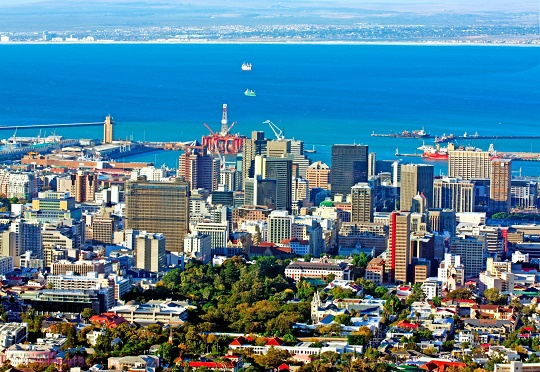[South Africa] Cape Town deploys new innovation to support over 170,000 informal traders

“Informal trade is a vital component of the City of Cape Town’s economy and provides income support to hundreds of thousands of residents and their families,” says Wilfred Solomons, Director: Area-Based Service Delivery at the City of Cape Town. “The Constitution states that municipal governments must create a socio-economic environment that allows citizens to make a living for themselves. To realise the vision set out by the Constitution, the City of Cape Town launched a range of ongoing initiatives aimed at supporting and advancing informal trade in the greater Cape Town area.”
Cape Town’s informal sector employs 170 000 people and makes a significant contribution to poverty alleviation among the city’s poorest communities. According to Solomons, informal trade in Cape Town is regulated, and traders are required to pay a licensing fee for their permits which need to be renewed monthly. “In the past, traders wishing to enquire about available trading bays were required to visit district offices.
All interactions between the City and traders occurred face-to-face, which meant traders had to sacrifice valuable trading time in order to comply with City regulations. With the new digital solution, traders can apply online 24/7 wherever they are.”
He adds that, if trading bays are not available, traders can add themselves to a waiting list based on the suburb in which they wish to trade. “The applicant receives an SMS when a bay is available. Once received, the trader will meet with a District Area Coordinator for the area in which the bay is located within 48 hours to secure the bay.”
The City of Cape Town implemented the SAP Real Estate Informal Trading e-Permitting System to improve the interaction traders have with the city and ease compliance requirements. The original e-permitting system, which was implemented in 2013, created a single system for reporting, permit disbursement, client maintenance, and tracking of bays and client accounts, but lacked integration to the SAP platform as well as mobile access.
Solomons says the new solution was initially met with scepticism and some resistance from traders. “We embarked on a training programme to show traders how the system would support them and enable them to more seamlessly comply to City licensing requirements from their smartphones. We also provide assistance to informal traders who wish to more into the formal sector and host regular engagements with the sector throughout the year.”
Since the SAP Real Estate Informal Trading e-Permitting System was implemented, City decision-makers have enjoyed improved decision-making based on better tracking and management of trader and bay information. “With the GIS integration we are also able to have a geographic view of the trading bays, their occupancy, and bay-specific attribute data such as compliance with environmental health, photos of the trader and their assistant, as well as a list of commodities sold per bay. Law enforcement is also equipped with up-to-date information regarding trader compliance with rental agreements, and the solution overall is more secure and less susceptible to manipulation.”
According to Pieter Bouwer, Regional Manager & Industry Head for Consumer Industries at SAP Africa, the City’s latest deployment equips decision-makers with powerful data sets that can greatly improve citizens’ access to licenses and permits needed to make a living for themselves. “As an organisation, SAP is committed to the UN Sustainable Development Goals, including Goal 8, which aims to provide decent work and economic growth opportunities to all the globe’s citizens. As the digitisation of government gathers pace, the City of Cape Town will enjoy ever-greater access to vital information that can be used to improve the citizen experience, alleviate poverty and ensure a better life for everyone who wants to live, work and explore one of the world’s most beautiful cities.”
www.sap.com
![[NIGERIA] : China Development Bank, UBA Sign Letter of Intent for a $100 million Loan Deal to Support SMEs in Africa](https://blogger.googleusercontent.com/img/b/R29vZ2xl/AVvXsEgTdQcYfF2h0OCH0BzpeyGMRfxGK-i1xr0Dcaw_eq_oa9Oi4tGf8EgDwNstvQja-_FbrLvvYP-HtcB8MKWBNolDmftPMpB-aLNYzt97ey79X-n7I_7FUCsiTQxn99fiJB4SmyW8s-p9c33U/s72-c/uba+1.jpg)
No comments